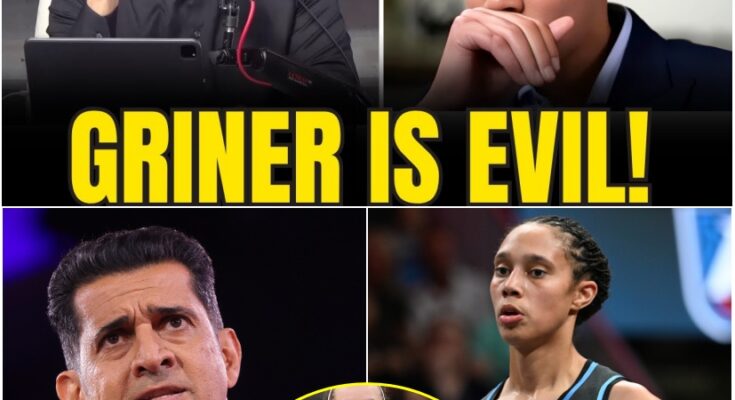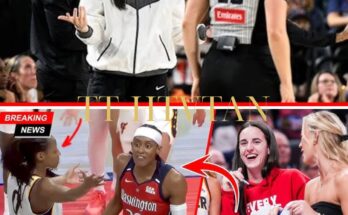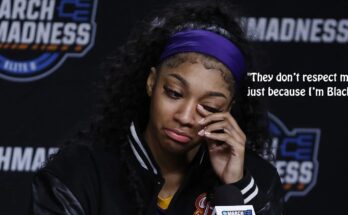
Patrick Bet-David and Podcast Team Call Out Brittney Griner Over Caitlin Clark Slur: A Defining Moment for the WNBA
The WNBA has found itself at the center of a cultural firestorm after a heated exchange between two of its most high-profile players—Brittney Griner and Caitlin Clark—spilled beyond the court and into the national conversation. The controversy reached new heights when Patrick Bet-David, the influential entrepreneur and host of the Valuetainment podcast, and his co-hosts publicly condemned Griner’s recent comments about Clark, accusing her of hypocrisy and racism. Their viral discussion has ignited fierce debate about double standards, race, and the future of women’s basketball.
The Incident That Sparked the Debate

The controversy began during a game between Griner’s Phoenix Mercury and Clark’s Indiana Fever. After fouling out, Griner was caught on camera appearing to call Clark “trash” and, according to some, using a racially charged slur—referring to Clark as a “white girl” in a derogatory context. The clip quickly spread online, prompting outrage among fans and media personalities.
Patrick Bet-David’s co-host, Vincent Oshana, did not mince words in his response. “We traded the Merchant of Death for your ass and you’re out there talking,” Oshana fired, referencing the high-profile prisoner swap that brought Griner back from a Russian prison in exchange for arms dealer Viktor Bout. The PBD team’s takedown of Griner’s remarks was blunt, unapologetic, and resonated with millions who felt the WNBA had failed to address the issue.
The Double Standard Exposed
Central to the podcast’s argument was the idea of a glaring double standard. “If Clark had said anything even remotely similar about a black player, her career would be over,” Oshana noted. The hosts argued that while Clark would have faced immediate suspension and public shaming for any perceived racial insensitivity, Griner’s comments were met with silence from the league office.
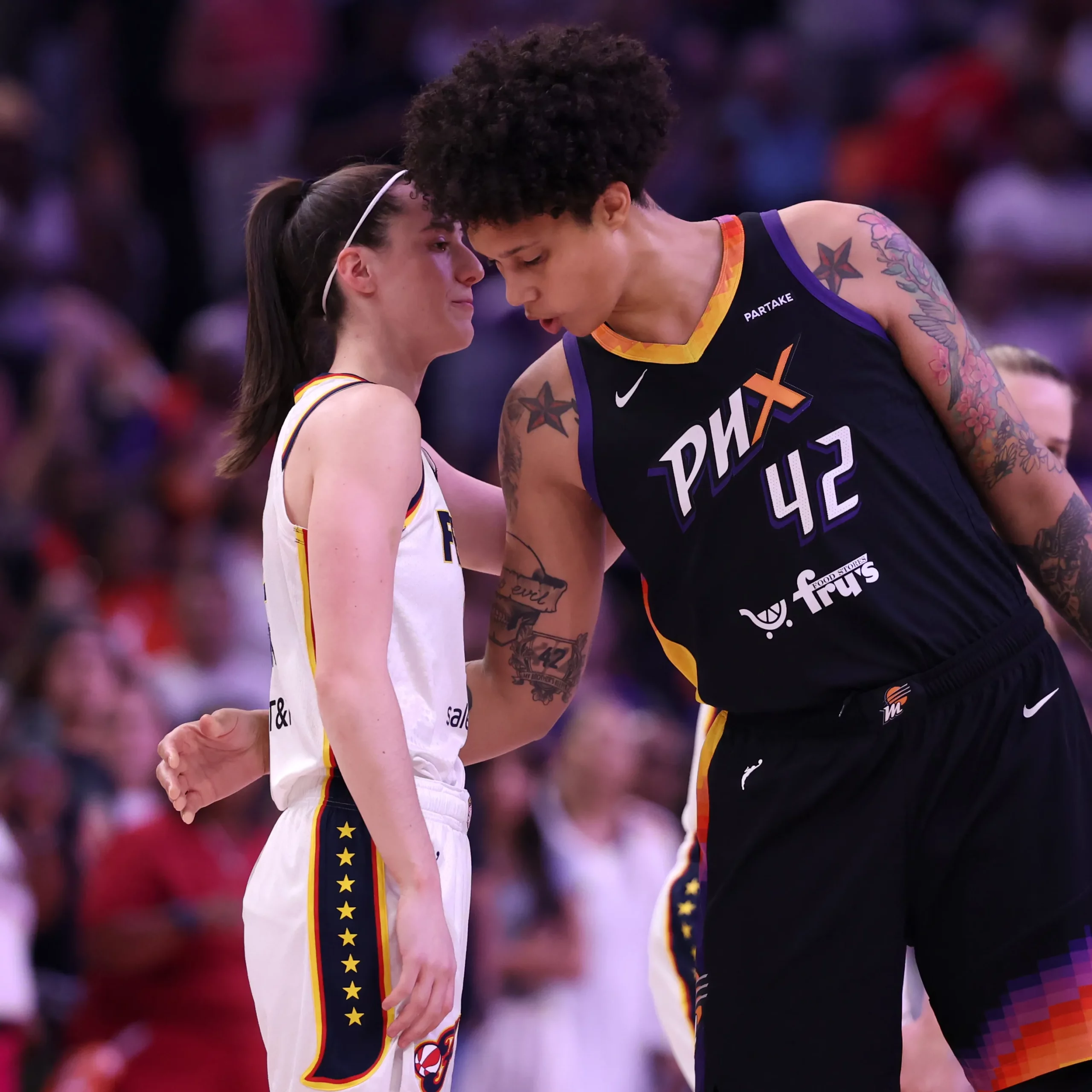
This silence, they contended, is emblematic of a broader hypocrisy within the WNBA—a league that, according to the PBD crew, is quick to investigate alleged racism against black players but turns a blind eye when the roles are reversed. The incident, they said, is “insulting to anyone with functioning brain cells.”
The League’s Backwards Priorities
The PBD team took aim not just at Griner, but at the WNBA’s overall handling of controversy. They pointed out that the league has struggled for years with low attendance and lackluster ratings, only to see a surge in popularity thanks to Caitlin Clark’s star power. Instead of rallying around their most marketable player, the league’s established stars, they argued, have created a toxic environment where Clark is targeted rather than celebrated.
Oshana’s critique was especially pointed: “These players are making good money playing a sport they love, yet somehow they’re victims because the most talented player in their league happens to be white.” He accused Griner and others of entitlement and a lack of gratitude for the opportunities they’ve been given.
The Failure of “Bending the Knee”
The podcast also criticized Clark’s attempts at bridge-building, referencing her previous comments about white privilege and the need to elevate black women in the sport. Rather than earning her respect, the PBD crew argued, these statements made her appear weak and gave her critics more ammunition.
“Clark tried to play the politically correct game, thinking that if she just acknowledged her supposed privilege and said all the right things, she’d be accepted by her peers,” Oshana said. “Instead, it made her look weak and gave her critics even more ammunition to use against her.”
Business and Cultural Implications
Beyond the immediate controversy, the PBD analysis highlighted the WNBA’s ongoing struggles with profitability and relevance. Despite Clark’s impact on ticket sales and television ratings, the league’s leadership has, in their view, failed to protect its biggest asset. The hosts predicted that Clark’s injury-related absence would lead to a sharp decline in viewership and ticket prices—a prediction already being borne out.
The podcast drew sharp comparisons to the NBA, where stars like LeBron James and Stephen Curry understand that mutual success benefits everyone. In contrast, the WNBA’s culture, as described by Bet-David’s team, is one where jealousy and resentment undermine the league’s potential.
Racism, Identity Politics, and the WNBA’s Future
Perhaps the most explosive aspect of the discussion was the charge of racism—both in Griner’s alleged comments and in the league’s response. The PBD team argued that racism is racism, regardless of who commits it, and condemned the WNBA for what they saw as selective outrage.
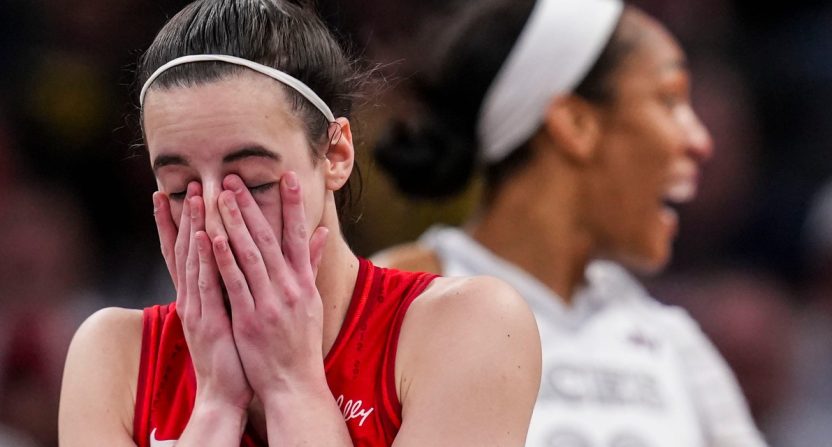
They also warned that the league’s focus on identity politics, rather than excellence and achievement, risks alienating the very fans it needs to survive. “The WNBA loses tens of millions of dollars every year and has never been profitable,” Oshana said. “They finally get a player who can actually drive revenue and interest, and instead of protecting that investment, they allow her to be attacked and marginalized.”
A Defining Moment
The fallout from the Patrick Bet-David podcast episode continues to reverberate across sports media and social platforms. For many, it was a moment of clarity—a blunt assessment of problems that have simmered beneath the surface of women’s basketball for years. For others, it was a dangerous escalation of culture war rhetoric.
As the WNBA navigates this controversy, one thing is clear: the league faces a defining moment. How it responds—not just to Griner and Clark, but to the broader issues of race, respect, and professionalism—will shape its future for years to come.
